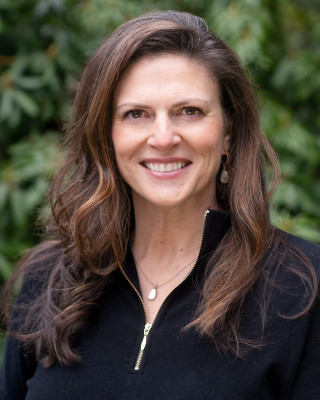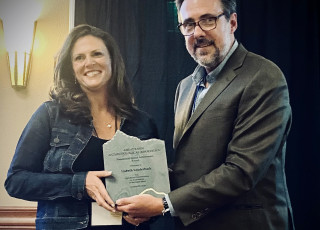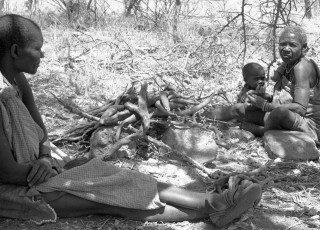Lisbeth Louderback, Ph.D.

Curator of Archaeology
Background:
Lisbeth Louderback received her PhD in Anthropology from University of Washington and joined the Museum staff in 2014. She brings a strong interdisciplinary background to archaeology with technical expertise in archaeobotany and paleoecology. Plant remains found in archeological sites, both large (seeds, fruits, leaves) and small (starch granules and pollen grains), provide clues to local resources and past climates that help define human dietary patterns through time. This allows Lisbeth to explore how people coped with environmental change during the late Pleistocene and Holocene in western North America, with a particular focus on the Great Basin and Colorado Plateau.
Lisbeth has established a research program on human dietary ecology, which examines the supply, harvest, processing, and energetic returns of plant and animal resources from natural ecosystems. Starch granule analysis has become critical to understanding human diets from archaeological contexts, especially when determining the contributions of geophytes (plants with edible underground tubers, bulbs, rhizomes and storage roots). Lisbeth mentors undergraduate and graduate students in multiple analytical analyses, including macrobotanical, starch, and pollen, as well as provides training in modern vegetation surveys.
Lisbeth has authored or co-authored more than 30 scientific publications and has given many public lectures on topics related to her research. She has also received several grants and contracts for her research, including from National Science Foundation, Bureau of Land Management, and United States Department of Agriculture. Lisbeth has over 20 years of field experience, working primarily in the Great Basin and Colorado Plateau.
Lisbeth currently serves as the Great Basin Anthropological Association (GBAA) President and is a founding member of the International Society of Archaeological Starch. She has been recognized for her contributions to academia and society, including the GBAA Presidential Special Achievement Award, College of Social and Behavioral Science Award for Advancing Equity and Connecting Communities, and the American Quaternary Association Denise Gaudreau Award for Excellence in Quaternary Studies.
Areas of Expertise:
• Prehistoric archaeology
• Quaternary paleoecology
• Past human diets
• Plant domestication
• Ethnobotany
• Great Basin/Colorado Plateau

